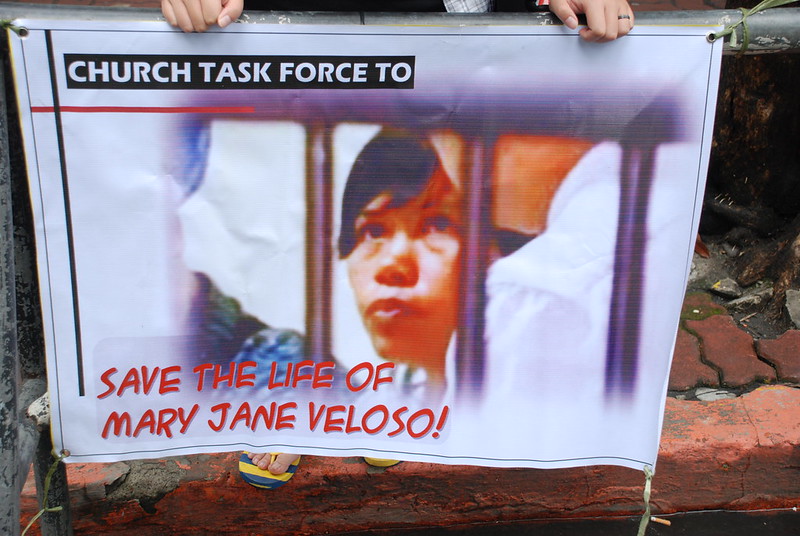Philippine death row inmate to go home for Christmas, migrants most vulnerable to capital punishment
The death penalty is again a topical issue in Southeast Asia after a Philippine woman sentenced to death for drug possession is set to go home where the death penalty is not in force. Capital punishment is widely enforced in Indonesia, Singapore, and Vietnam. A call is getting louder for “the protection of vulnerable communities”, with many voices warning that “no justice system is immune to error”.
Jakarta (AsiaNews) – Indonesia’s decision to repatriate Philippine national Mary Jane Veloso by Christmas has been welcomed as an important step by those committed those to the abolition of the death penalty in Southeast Asia. The only thing that remains is for Indonesian President Pabowo Subianto to sign the clemency measure.
The 39-year-old Philippine national was arrested in 2010 with 2.6 kilograms of heroin and sentenced to death in 2015. Since then, she has been waiting for her sentence to be carried out, until yesterday when she was informed of her release and repatriation to the Philippines where her case will be submitted to the local justice system.
This case highlights the importance of regional cooperation on justice and human rights issues.
“This outcome is a testament to the enduring power of collective action, solidarity and the relentless efforts of advocates across Southeast Asia,” said Mercy Chriesty Barends, APHR Co-chairperson and a member of Indonesia’s House of Representatives.
“Mary Jane’s case is a poignant reminder of the vulnerabilities migrant workers face and the systemic failures that expose them to exploitation and injustice,” she added.
“APHR calls on the Philippine government to grant clemency to Veloso upon her return, recognizing her as a victim of human trafficking rather than a criminal,” said Arlene D. Brosas, APHR Board Member and member of the Philippines House of Representatives.
In Southeast Asia, calls are getting louder for the region’s governments, especially those that have the death penalty, to prioritise the protection of the most vulnerable groups, boost safeguards for migrants, and abolish punitive measures that perpetuate inequalities and lead to blatant errors, which are, as is precisely the case of capital punishment, irreversible.
At present, Indonesia, Singapore, and Vietnam still have capital punishment for the purpose of deterrence.
Myanmar, Laos, and Brunei have reduced the number of executions in recent years, but since civil broke out in the former, the situation in that country is uncertain, while in Muslim majority Brunei, the death penalty is imposed in a rigid application of Sharia, Islamic law.
Despite its illiberal and autocratic regime, Cambodia abolished capital punishment in 1989, followed in 2006 by the Philippines (where pressures for its reinstatement persist). In July 2023 Malaysia abolished the death penalty for a long list of offences after a five-year moratorium of executions. That still leaves some 1,300 inmates on death row whose fate remains uncertain.
A moratorium is also in place in Thailand, while Timor Leste, the only country that is not a full member of the Association of Southeast Asian Nations (ASEAN), excludes it from its Constitution.
Photo: Flickr/Lennon Ying-Dah Wong
12/05/2016 14:18







.png)










